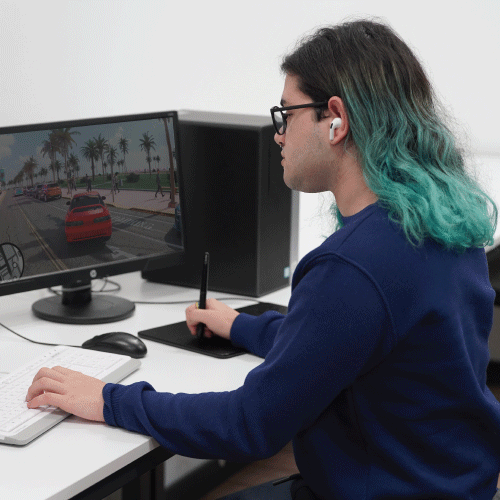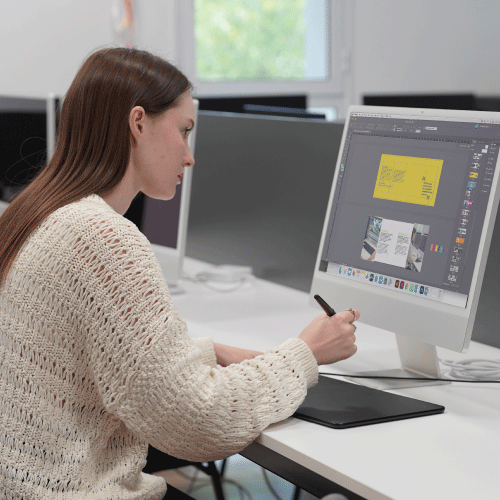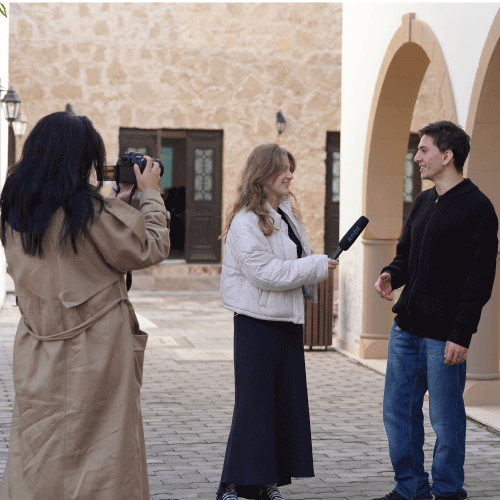FACULTY OF COMMUNICATION
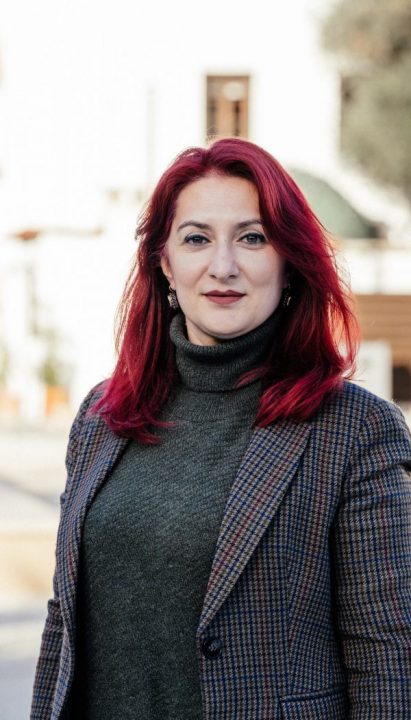
Prof. Dr. Nezahat Doğan
Dean
Dean's Message
The ARUCAD Faculty of Communication is structured to foster the creative potential and intellectual growth of its students, equipping them with the knowledge, skills, and ethical values necessary to thrive in the multifaceted and dynamic world of communication. Our academic programs are designed with a student-centered approach, aiming to provide the most current academic knowledge alongside essential professional skills and practices, thereby supporting students’ development as well-rounded individuals.
Through interdisciplinary programs that combine theoretical and practical coursework and are enriched by the arts, we offer an educational environment that embraces the principles of creativity, equality, diversity, sustainability, and collaboration. This approach not only helps students adapt to a constantly changing world but also empowers them to contribute meaningfully to this change.
About Faculty
The ARUCAD Faculty of Communication was founded with an understanding that values creativity, ethics, innovation, cooperation, sustainability, equality and differences. We have an understanding to equip our students with knowledge, professional skills and competencies specific to the field of communication.
In the Faculty of Communication, an interdisciplinary curriculum that includes both theoretical and practical courses, nourished by art is applied. One of our main goals is to help both our students and academics reveal their full potential. The academic programmes of all departments are designed for students to understand the globalized and digitalized world, to adopt critical thinking, to value innovative and creative ideas and to transform these creative ideas into practice.
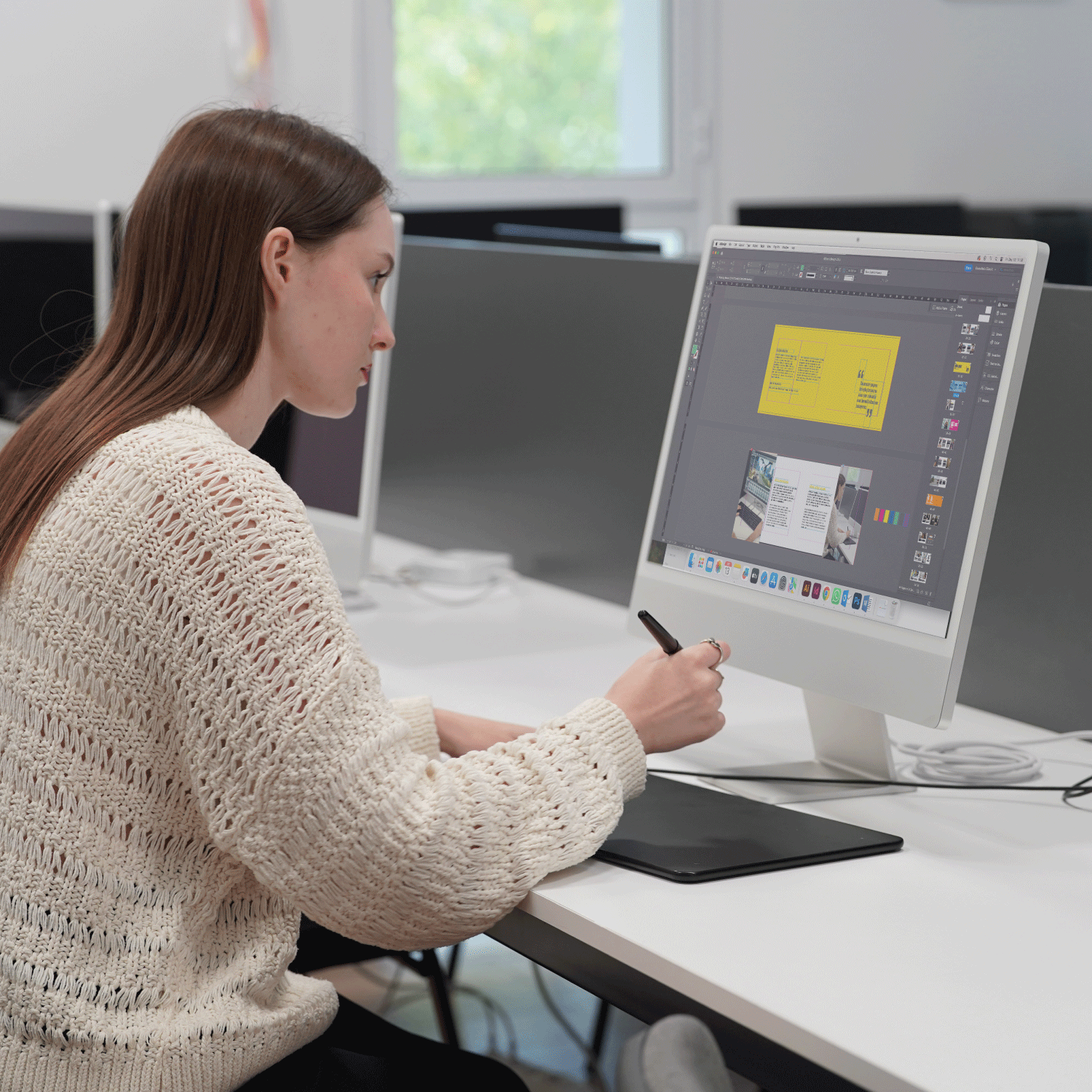
The main mission of ARUCAD Faculty of Communication is to educate creative and productive individuals who can participate in academic, artistic and design activities at national and international level; act with the principle of lifelong learning; respect the cultural heritage and values of humanity; have responsibility towards the city, country and the world in which they live; are sensitive to global environmental problems; have high self-confidence; master the field knowledge and technological innovations of the age; have analytical and critical thinking skills.
The Faculty of Communication was established with an understanding that prioritises creativity, ethics, innovation, cooperation, sustainability, equality and respect for differences. It offers a creative educational environment to its students, whom it aims to equip with knowledge, professional skills and competencies specific to the field of communication. In our faculty, an interdisciplinary education programme that includes both theoretical and practical courses and is nourished by art is implemented.
One of our main goals as a faculty is to help both our students and academicians to reveal their potential at the maximum level. The academic programmes in all departments are designed to help students understand the globalised and digitalised world, adopt critical thinking, understand the value of innovative and creative ideas and transform these ideas into practice.
| Arkin University of Creative Arts and Design, Faculty of Communication, DMP Programme | |
| Major Programme | Second Major Degree Programme |
Visual Communication Design | Faculty of Communication |
| New Media and Communication | |
| Dijital Oyun Tasarımı | |
| Faculty of Arts | |
| Plastic Arts | |
| Film Design and Directing | |
New Media and Communication | Faculty of Communication |
| Visual Communication Design | |
| Digital Game Design | |
| Faculty of Arts | |
| Plastic Arts | |
| Film Design and Directing | |
| Visual Communication Design Department | |||||
| 2024-2025 Academic Year | |||||
| Double Minor Curriculum | |||||
| Fall Semester Courses | |||||
| Course Code | Course Name | T | A | C | ECTS |
| VCDE111 | Basic Design | 2 | 2 | 3 | 6 |
| VCDE201 | Sight, Sound, and Motion | 2 | 2 | 3 | 6 |
| VCDE211 | Vectorial Drawing | 2 | 2 | 3 | 5 |
| VCDE203 | Visual Language and Culture | 3 | 0 | 3 | 5 |
| VCDE301 | Illustration | 2 | 2 | 3 | 5 |
| VCDE303 | Major Design | 2 | 2 | 3 | 5 |
| Total | 18 | 32 | |||
Spring Semester Courses
| Course Code | Course Name | T | A | C | ECTS |
| VCDE112 | Human Centered Design | 2 | 2 | 3 | 7 |
| VCDE132 | Computer Graphics and Image | 2 | 2 | 3 | 6 |
| VCDE212 | Typography and Layout | 2 | 2 | 3 | 6 |
| ANIM212 | 3D Modelling | 2 | 2 | 3 | 5 |
| VCDE302 | Portfolio Design | 2 | 2 | 3 | 5 |
| Total | 15 | 29 | |||
Minimum 33 local credits and 61 ECTS required to obtain a double minor certificate.
Double minor quota for the Visual Communication Design Department: 5
| New Media and Communication Department | |||||
| 2024-2025 Academic Year | |||||
| Double Minor Curriculum | |||||
| Fall Semester Courses | |||||
| Course Code | Course Name | T | A | C | ECTS |
| YMED105 | Digital Design Concepts | 2 | 2 | 3 | 5 |
| YMED203 | Digital Media Marketing | 2 | 2 | 3 | 5 |
| YMED205 | Publishing | 2 | 2 | 3 | 6 |
| YMED201 | Game Design Concepts | 2 | 2 | 3 | 5 |
| YMED301 | Writing Skills | 2 | 2 | 3 | 5 |
| GİTA307 | Infographic Design | 2 | 2 | 3 | 5 |
| Total | 18 | 31 | |||
Spring Semester Courses
| Course Code | Course Name | T | A | C | ECTS |
| YMED102 | Web Technologies | 2 | 2 | 3 | 5 |
| GİTA132 | Computer Graphics and Image | 2 | 2 | 3 | 6 |
| YMED202 | Podcasting and Blogging | 3 | 0 | 3 | 6 |
| YMED204 | Interactive Design | 2 | 2 | 3 | 5 |
| YMED304 | Digital Media Portfolio | 2 | 2 | 3 | 5 |
| YMED402 | New Generation Media | 3 | 0 | 3 | 5 |
| Total | 18 | 32 | |||
Minimum 36 local credits and 63 ECTS required to obtain a double minor certificate.
New Media and Communication Department Double Minor quota: 5
Undergraduate Programs Communication Area Outcomes
- To have sufficient knowledge on scientific, social, economic, legal, political, social and cultural issues related to the field of communication and its programs from an interdisciplinary perspective; to have the ability to form and defend consistent and comprehensive ideas with this knowledge,
- To have the ability to research, plan, develop and implement products with a creative and critical approach.
- To have the ability to carry out teamwork in the field
- To have the ability to apply the principles of professional ethics in their work.
- To be sensitive to the universal and social effects and legal consequences of professional studies related to the field such as sustainable development goals, public interest and public service.
- To have knowledge and experience about business life practices (internship).
- To have knowledge and skills in entrepreneurship and business development.
- To have successfully completed at least two out-of-field (university elective) courses in the curriculum.
- To have knowledge about occupational health and safety.
- To have the ability to communicate effectively both orally and in writing in at least one foreign language (European Language Portfolio B1 General Level in Turkish Education Program, European Language Portfolio B2 and above General Level in English Education Program).
- To have the ability to use information and communication technologies (software, programs, applications, etc.) effectively.


